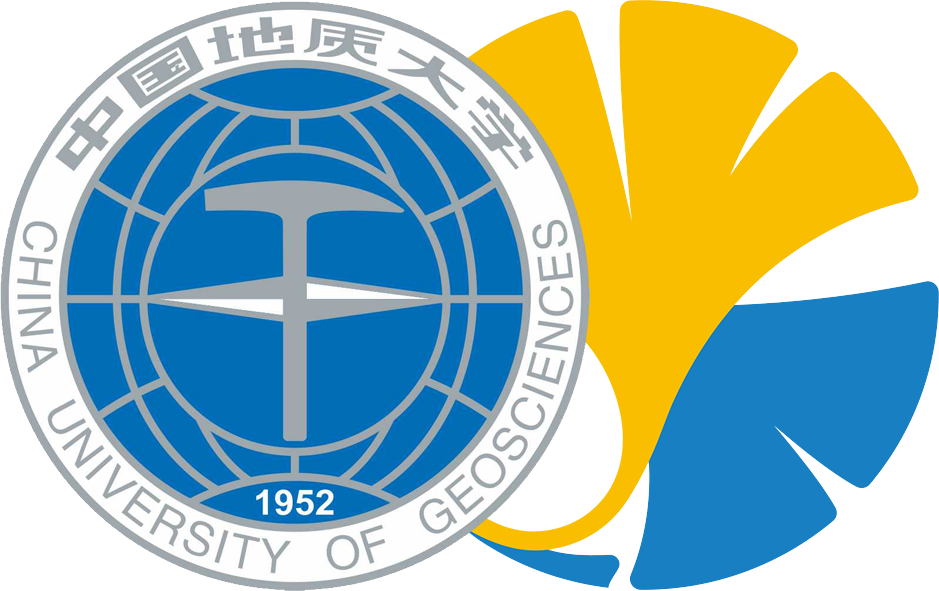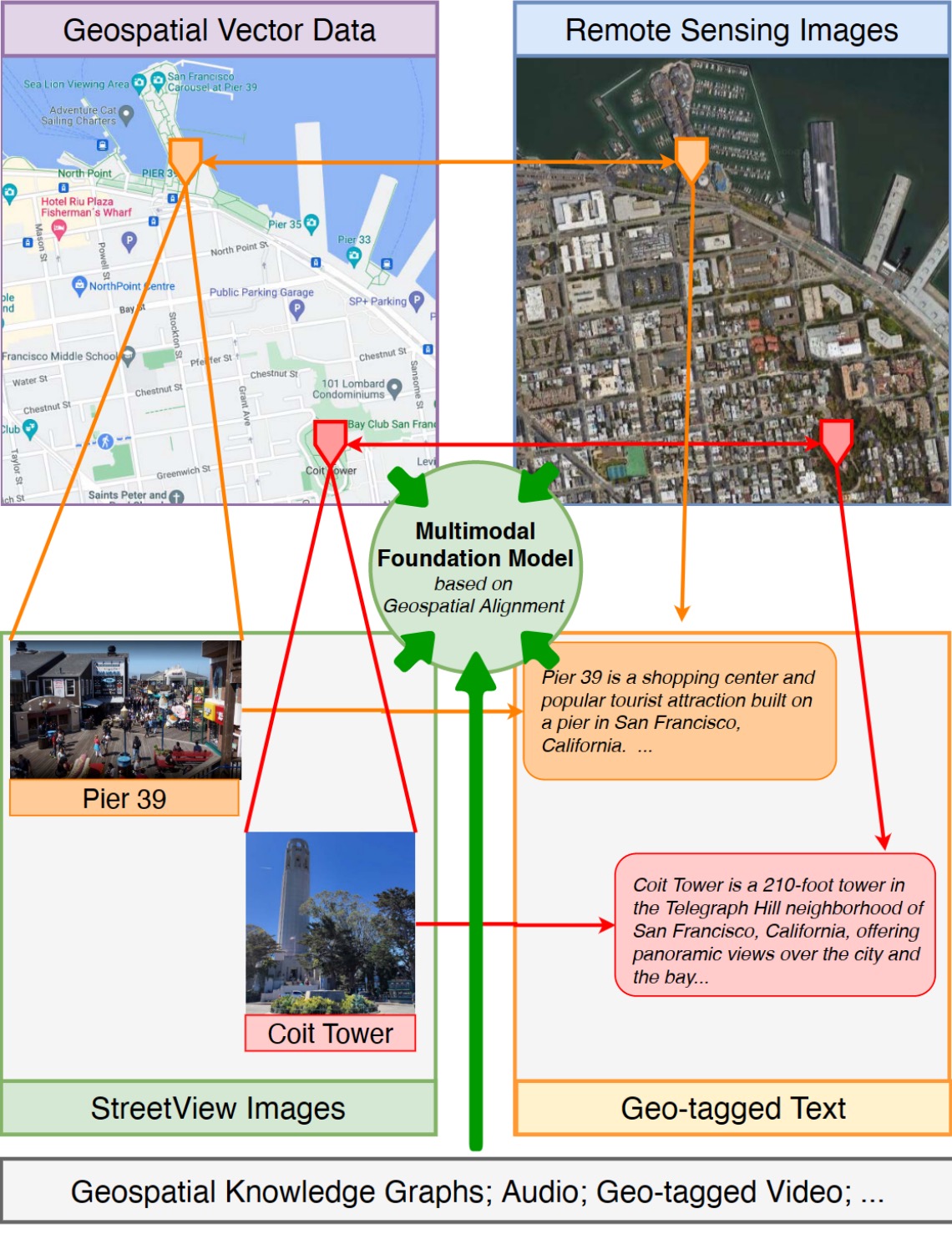GeoFM: Foundation Models for Geospatial Artificial Intelligence
Special Issue of International Journal of Geographical Information Science
Open Call for Submissions
The Theme and Scope
The recent rapid development of Artificial Intelligence (AI) and Machine Learning (ML) calls for a paradigm shift – instead of designing and training AI models for a specific task, an increasing number of AI researchers prefer the practice of developing large task-agnostic models pre-trained on Web-scale data, which later-on can be “adapted” to various downstream tasks via fine-tuning, few-shot learning, or zero-shot learning. Such kinds of pre-trained models are also called “foundation models”. Good examples are ChatGPT, LLaMA, GPT-4, Segment Anything Model, Stable Diffusion, and so on. Some of them can only be applied to one single data modality – large language models (e.g., ChatGPT, LLaMA) while the others (e.g., GPT-4 and Segment Anything Model) can utilize multimodal data. The development of foundation models may become a breakthrough innovation in this decade and has the potential to expose society at large to an entirely new way of information retrieval, education, and digital assistance.
Multiple previous studies have shown that when adapted to specific tasks (e.g., common sense question answering), foundation models can often surpass the performance of state-of-the-art, fully supervised AI models. However, applying foundation models to domain tasks (e.g., medical diagnosis, place recommendation) raises many ethical issues (e.g., user & location privacy, model bias, etc.).
Now the question for GIScience and GeoAI is, "Will foundation models replace the current task-specific GeoAI models thus introducing a general-purpose framework to solve geospatial problems?” If so, to what degree and what are the consequential implications for GIScience? If not, what could GIScience and GeoAI researchers contribute to the current new AI paradigm? Regardless of the answer, there is no doubt that we have entered a new era of GeoAI which calls for new research practices, evaluation frameworks, and ethical reflections on the use of foundation models in the GIScience community. This special issue aims to bring together the latest research that focuses on applying, testing, modifying, and/or developing foundation models that can seamlessly tackle different geospatial tasks that involve heterogeneous, multimodal data, and produce more accurate and unbiased predictions or generations.
Relevant Topics Include
- Benchmark the effectiveness of foundation models on geospatial applications
- Novel prompt engineering methods for geo-foundation models
- Zero-shot and few-shot learning with geo-foundation models
- Fine-tuning foundation models ongeospatial tasks
- Development of (multimodal) foundation models for GeoAI applications
- Societal impacts, risks, and biases of foundation models for geospatial problems
- Endeavors in gathering and curating large-scale geospatial datasets for training/finetuning/evaluating foundation models.
- …
Submission Procedure
This IJGIS special issue welcomes submissions by scholars from all disciplines. Interested authors should first submit a short abstract (250 words max) to Krzysztof Janowicz (krzysztof.janowicz@univie.ac.at) and Gengchen Mai (gengchen.mai25@uga.edu) before September 23rd, 2023. Guest editors will review the submitted abstracts and evaluate whether the submissions fit the themes of this SI. Authors of abstracts with suitable topics will be invited to submit full manuscripts, while the invitation does not guarantee acceptance to the SI.
Full manuscripts, including any supporting materials, should be submitted using the journal's submission portal available at http://mc.manuscriptcentral.com/ijgis by December 31, 2023, and the authors should specify this SI as the target during their submission. Guidelines for submission of full manuscripts can be found at http://www.tandfonline.com/action/authorSubmission?journalCode=tgis20&page=instructions/. Please pay special attention to the required data and codes availability statement.
The International Journal of Geographical Information Science considers all manuscripts on the strict condition that they have been submitted only to the International Journal of Geographical Information Science, that they have not been published already, nor are they under consideration for publication or in press elsewhere. Authors who fail to adhere to this condition will be charged with all costs that the International Journal of Geographical Information Science incurs for their papers, and their papers will not be published. IJGIS exercises double-blinded peer reviews. Authors should only deposit anonymous manuscripts to online depositories. IJGIS cannot consider manuscripts with author information available online.
Important Dates
- Abstracts (no more than 250 words) Due: Sep. 23, 2023
- Decisions on abstracts: Sep. 30, 2023
- Full manuscripts Due: Dec. 31, 2023
Special Issue Guest Editors
- Krzysztof Janowicz, University of Vienna & UC Santa Barbara
(krzysztof.janowicz@univie.ac.at) - Gengchen Mai, University of Georgia, Athens, Georgia, USA
(gengchen.mai25@uga.edu) - Rui Zhu, University of Bristol, Bristol, UK
(rui.zhu@bristol.ac.uk) - Weiming Huang, Nanyang Technological University, Singapore
(weiming.huang@ntu.edu.sg) - Ni Lao, Google, Mountain View, CA, USA
(nlao@google.com) - Ling Cai, IBM Research, San Jose, CA, USA
(lingcai@ibm.com)
Q.E.D.










